- Home
- Paul Christopher
Wisdom of the Bones Page 7
Wisdom of the Bones Read online
Page 7
Why a refrigerator? A cardboard box or an old trunk would have worked as well and been a lot lighter. Why cut him up if all you were going to do was put him back together again with wire? Why cut away squares and rectangles of skin after he was dead and could feel no pain? Why kill him at all? Who the hell used miniature chisels?
There were no answers in the bathroom, only the smell of the bleach. Ray stood, zipped and buckled, then flushed the toilet. He rinsed his hands at the sink, avoiding the mirror, then dried his hands on a towel and went out into the little hall again. Straight ahead was the dining room, and from there the kitchen, but he’d just eaten. Left was the bedroom and a nap he could probably benefit from and right was his study. He went to the right.
Back when he was with Lorraine the study had been their bedroom, with a nice view out into the little backyard and the trees. It was eleven feet by twelve feet with a closet and a second, smaller window that looked out onto the driveway. He’d taken out the bed and given it away to the Salvation Army along with everything else in the room since he assumed Krolik had screwed Lorraine in the bed and had his paws on everything else. For a while he’d considered ripping out the sink and toilet but eventually he settled down and figured that was going a bit far.
Initially the room had just been an empty shell but as time passed it began to fill up with things, mostly books, mostly non-fiction, mostly history, mostly military. For a few years he’d collected toy soldiers, which he kept displayed on top shelves of the bookcases and in a tall glass-fronted cabinet. Most of them were made by a French company called Mignot, and with the exception of fifty or so depicting British and American soldiers from the Revolutionary War, the rest were Civil War, predominantly Confederate. He supposed that some of them were quite valuable by now but he hadn’t thought about them much in a long time.
There was a tweed-covered La-Z-Boy in one corner with a seventeen-inch black-and-white GE television on four brass-bottomed legs directly across from it. There was a small desk and a wooden chair for doing bills under the side window and another braided rag on the floor, this one dark blue. Above the desk and along the wall there were a score of photographs, mostly of war buddies from the Second World War and Korea.
In each and every one of the framed black-and-white pictures Ray was smiling, which he sometimes thought was a little strange under the circumstances. Most of the war buddies were dead, or gone to fat or boring, and he only kept in touch with one or two of them. In the middle of all the pictures was his Congressional Medal of Honor for the pillbox he’d blown up single-handed in Tunisia. The sad thing of course was that none of it really meant much any more, not to Ray Duval or to anyone else. Roosevelt had draped the medal around his neck himself but all Ray could remember was the smell of death and Camel cigarettes on the man’s breath and the fact that you could see the bones of his cheeks and jaw underneath this baby-smooth skin that was as thin and brittle as parchment.
Ray went and built himself a drink and brought it back into his study. He put the drink down on the table beside the La-Z-Boy and switched on the television, adjusting the rabbit ears until the reception was as good as it was going to get. He’d expected a mindless hour watching Rawhide but there was a news special on Kennedy’s visit instead. He switched channels and got My Three Sons, which he couldn’t stand. He rose and switched off the television and listened to the rain tapping on the roof. It seemed to be coming down a little harder. He sipped his drink slowly, knowing it would eventually put him to sleep and he hated that. Even if it was just sitting in the dark trying to figure out who’d cut up Jennings Price and stuck his puppet corpse into a fridge it was better than sleeping. Sleeping was too much like listening to your own heartbeat and wondering if you were going to wake up the next morning.
He took another sip of his drink and put the glass down on the side table again. It was dark in the room and outside there was thunder and more rain pounding on the shingles. Too many things rushed into his soul in an instant and he found himself weeping uncontrollably. As the thunder banged over his head and the rain came down, tears coursed down his cheeks and he felt like an utter fool.
After a few moments he pulled himself up out of the chair and, leaving his drink behind, he went into his bedroom, the room that he’d always thought was going to be a nursery. Now there was a single bed with a square mahogany headboard and footboard to match, the mattress covered in a light blue spread of popcorn chenille. There was only one bedside table and a lamp made from one of those fat little Chianti bottles wrapped in wicker. There was a closet full of brown and blue suits and white shirts and a bureau for his underwear and socks.
Ray took off his jacket and hung it up, then slipped out of his George Lawrence shoulder rig and put it and the big Browning Hi-Power on the bedside table. He’d first used the nine millimetre automatic during the war and when he’d returned to the force he’d bought one directly from Browning Arms in St Louis. Dallas detectives could use their choice of weapons and with the thirteen rounds in the clip the Hi- Power was a lot more useful than anything else he could find except the much heavier Colt .45. He lay down on the bed, in the darkness, wondering if the bed was more like a coffin or a casket, the tears drying on his cheeks. He turned onto his side, facing the closet, and arranged his head on the pillow so he couldn’t hear his heartbeat or feel the jerking pulse in his throat. The rain seemed to be coming down harder and it occurred to him that all the fuss about Kennedy’s visit might come to nothing if the weather stayed bad; no one wanted a parade in the rain.
Thursday
November 21, 1963
Chapter Six
The Monster sat at one of the tables in the back of the little Mexican restaurant on McKinney Avenue, working his way through a large bowl of Mike Martinez’s hottest chilli and taking occasional pulls from his third bottle of Tecate. He kept his back to the wall and his face in the shadows. No one even glanced in his direction and the waiters ignored him; he wasn’t quite a regular but he’d been there often enough to be familiar and thus invisible. In the kitchen a radio was blaring out a Mariachi Vargas song with plenty of horn. The radio was probably tuned to KCOR, the San Antonio Tex–Mex station.
The restaurant was decorated in garish shades of red, green and yellow, contrasting with the drab work clothing of most of the people eating. Most of the El Fenix patrons were construction and railway workers and almost all of them were men. As usual the Monster was one of the few Caucasians in the restaurant, although it seemed as though more and more were crossing the tracks from downtown to enjoy the Martinez family’s offerings.
The Monster finished his chilli and lit a Camel, leaning back in his chair and enjoying the hot aftertaste of the spicy food in his belly. He looked out over the restaurant, marvelling at how much had changed since he’d last lived in Dallas. Before the war no white man in his right mind would have dared to venture into the dusty barrio of shotgun shacks and unpaved streets beyond the warehouse district above Munger Avenue any more than going for a stroll in Deep Ellum. Now coming to a place like El Fenix was a safe adventure on a night out with your best girl. They’d even opened up a second restaurant in Oak Cliff and Mama Martinez was selling her own salsa in jars at the cash register. El mejor en la ciudad. The best in the city. There were nightclubs, restaurants and bars up and down ten blocks of McKinney and the streets north of the main strip were paved now instead of rutted dirt.
The Monster tipped forward in his chair and tapped his cigarette on the edge of the tin ashtray in the middle of the table. He looked up as the door opened and saw a young couple step into the crowded room. Exactly the pair he’d been thinking about. They were dressed for a night out and in their twenties. The woman was wearing a maternity dress under her raincoat, swelling out sweetly under something in a tweedy brown. Her husband helped her out of the raincoat and the Monster got a perfect view of her. Under the dress she was wearing a white blouse with a Peter Pan collar. The straps over her shoulders were wide with large crea
m-coloured buttons. Like every pregnant woman he’d ever seen she was dressed to look as innocent as possible, her clothing obscuring the obvious evidence of at least one filthy night with the man at her side.
The Monster smiled in the gloom, wondering what she’d do if she knew what was sitting only a dozen feet away, watching her, thinking about the soft wet slit under her pretty little dress, wondering what sex her child would be, how smooth and wonderful the infant’s skin would be, smoother than unborn kid or calf.
Reuben, one of the younger Martinez boys, brought the young couple across the room, so close that the Monster could smell her perfume. Something old-fashioned, tickling at the edge of memory. Bourjois, Evening in Paris. The woman didn’t even glance his way, just an ordinary guy with a bowl of chilli and a beer in front of him. Ordinary, that was the key to it all. So ordinary everyone and anyone paid no attention. It had always been like that, even back in the beginning. Lost in the crowd, free to do as he pleased. A missing kid in a huge crowd didn’t spark much attention.
The Monster took a sip of his beer and a drag on his cigarette. What was that old saying his father thought was so funny? You can’t tell a book by its cover? Not true. Not true at all.
* * *
Ray woke up three times during the night, once to go to the bathroom and twice because he was sure he was having a heart attack, even though his doctor had told him that wasn’t the way he’d go, except at the very end. He’d lain still as death in the bed both times he’d been awakened by the chest-clenching panic he was so familiar with. He didn’t want to call an ambulance or drive up to Parkland himself and then find out it was nothing, which he was sure it was, but at the same time he was sure lots of people had died that way – not taking action because they might look stupid. There was also a third way of looking at it. He woke up with the same choking anxiety every night, so if you assumed that you couldn’t be having a heart attack every night, you probably weren’t having one now.
The third and final time it was getting on for six thirty so he decided to stay up for good. Wearing nothing but his Fruit of the Looms, he went into the kitchen, had a bowl of Total with milk then went and had a shower. By the time he was dressed and on his way out the door he felt almost normal again and could even make believe that he was perfectly all right. It was still raining when he got into the Bel Air but not as hard as the night before. He made it to the squad room just after seven thirty and right before the shift change.
John McDonald, one of the old guard who occupied the desk across the aisle from Ray, flipped a piece of paper across to Ray. ‘Seen this?’
Ray looked down at the piece of paper. It was a badly printed poster about the size of a sheet of typing paper. At the top there were two pictures of the President, one full face, the other left profile like a mug shot. Underneath the pictures, in bold type it said:
WANTED
FOR
TREASON
The text below had seven numbered paragraphs, each one presenting one of Kennedy’s ‘treasonous’ activities, ranging from a simple Betraying the Constitution (which he swore to uphold) to the more complicated He has been wrong on innumerable issues affecting the security of the U.S. (United Nations – Berlin Wall – missile removal – Cuba – wheat deals – test ban treaty – etc.) and the obscure He has been caught in fantastic lies to the American people, including personal ones (like his previous marriage and divorce).
‘Where’d you find this?’ Ray asked.
‘They’re all over downtown,’ said McDonald. ‘Must be a few thousand – telephone poles, walls, on the ground.’
‘Think it means anything?’
‘Naw,’ said McDonald, shaking his head. ‘You know what this town is like. Some guy with a printing press and a bee in his bonnet gets his gonch in a wringer and prints these up. Freedom of the press and all that shit.’
‘Yeah.’
‘Hear you caught a murder.’
‘Strange one.’
‘Stiff in an icebox, right?’
‘Yeah.’
‘Mob?’
‘Don’t think so. No connection I can find.’
‘Either way you should talk to Jack about it.’
‘Jack?’
‘Ruby, you know, the guy who gives the bulls free drinks at his bar. The Carousel Club.’ McDonald pulled a fat, worn-smooth wallet out of the sagging back pocket of his trousers and rummaged around in it for a moment. He flipped a small business card onto Ray’s desk: Carousel Club, Continuous shows, Girls! Girls! Girls! Open to two a.m, nightly. Your Host… Jack Ruby. There was also an address on Commerce Street and a telephone number. Ray wrote the address and number down in his notebook and underlined the name Jack Ruby. He flipped the card back to McDonald, who put it back in his wallet.
‘Used to be Chicago mob or something?’
‘So he says.’
‘Why would he know about gays?’
‘He lives with a guy.’
‘That doesn’t make him gay.’
‘There’s been rumours.’
Ray shrugged non-committally, took out his notebook, and flipped back to yesterday’s notes and found the name of Price’s ex-lover – Douglas Foster Valentine. There was no home number listed but there was a commercial number for Valentine’s Rare Books and Art on Harwood, barely two blocks away. It was too early to call so he spent the next hour talking with incoming cops taking over the day shift and read most of the morning edition of the Times Herald. He drank three cups of coffee from the big West Ben urn and ate one of the blueberry muffins Runny Ronny from the night shift had left behind. Ron Cope had a wife who baked obsessively and he could always be counted on to leave a few of Amanda’s overly sweet gems behind when he headed home for his eight and eight.
At nine o’clock Ray called Valentine’s and got the man himself on the phone. The voice was a smooth baritone with a little bit of adenoid in it, making him sound as though he had a perpetual mild cold.
‘My name is Ray Duval. I’m a detective.’
‘A policeman?’
‘Yes. I’d like to talk to you about Jennings Price.’
‘Why? Has he stolen something? Forged a document and tried to sell it?’
‘No, nothing like that.’ Ray paused. ‘You don’t seem to like him very much, Mr Valentine.’
‘He’s a thief and a liar, among other things.’
‘Also among other things he’s dead,’ said Ray and waited. The silence was long enough to make Ray think he might have been cut off. ‘Mr Valentine?’
‘Sorry, just digesting the information. Presumably since you’re a policeman Jennings didn’t die of natural causes.’
Ray smiled. Valentine was backing away from his anger, using the man’s first name. ‘No, he was murdered. We found him at the dump, inside a refrigerator.’
‘I’m sure he would have preferred something a little more dignified but I’m not surprised.’
‘Why’s that?’
‘Jennings dealt with some fairly unsavoury characters from time to time.’
‘Business or pleasure?’
‘Both. He sold books but he sometimes purchased his favours.’
‘Is that a fact?’
‘Yes. Young ones.’
‘Maybe we should talk about this in person, Mr Valentine.’
‘Feel free. You’re at police headquarters? That dreary pile beside the courthouse?’
‘That’s it.’
‘Then it won’t take you more than a few minutes to get here. I’ll put on the coffee.’
Ray used the main elevators along the corridor and went out the front door instead of having to walk up the Main Street parking ramp from the basement. The rain had faded to almost nothing and he found himself enjoying the fresh smell of the wet streets and sidewalks as he made his way up Harwood Street to Valentine’s store. Unlike the space occupied by Jennings Price, Valentine’s Rare Books and Art was an ordinary storefront with a plain sign, gold on black above the double glass door
s. There was a wheeled plywood cart full of mildew-damaged books and humidity-bloated paperbacks just at the entrance and a small sign saying ANY BOOK – 10 CENTS. Ray pushed open the door and a little bell tinkled. Old-fashioned; part of the image or a genuine eccentricity?
Valentine’s Rare Books and Art was the size of an average shoe store and not half as well lit. There were bookcases against all the walls and an island of bookcases in the centre of the store. A dogleg to the right was also crammed with books and in a completely separate room behind a waist-high counter on the left there were more books, these in bookcases equipped with glass doors and locks. The good stuff. In the back room Ray could also see a pair of old velvet-upholstered armchairs and a side table with an ashtray on it. He smelled coffee, a richer, deeper aroma than the brew in the squad room.
A slim, relatively short man rose from behind the counter. He was in his late forties or early fifties, his hair a little too long, brown with grey at the temples. He wore metal-framed glasses and was dressed in a white shirt, tapered trousers with a small blue check and comfortable-looking suede shoes.
Ray held out his hand as the man came around the counter. ‘Mr Valentine?’
‘You must be Detective Duval.’ The two men shook hands. Ray noted that Valentine’s grip was firm and dry and when they shook hands the other man met his gaze directly. ‘I’ve got coffee in the back.’ He led Ray into the back room. Out of sight from the outer room there was a small table with a coffee urn, a small bottle of cream and an old jam jar that had been turned into a receptacle for sugar. There was one cup with a mismatched saucer and several mugs.

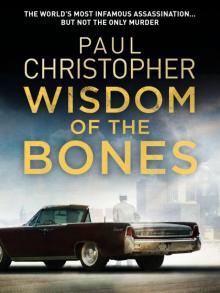 Wisdom of the Bones
Wisdom of the Bones The House of Special Purpose
The House of Special Purpose The Second Assassin
The Second Assassin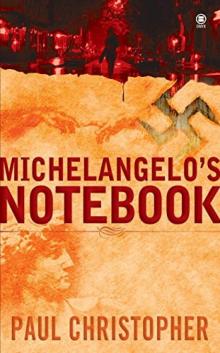 Michelangelo's Notebook
Michelangelo's Notebook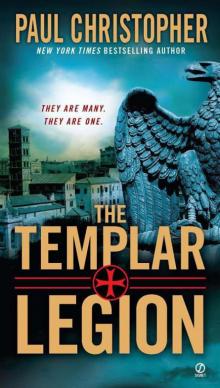 Templar Legion
Templar Legion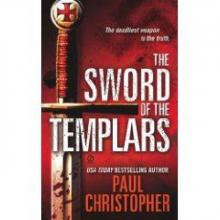 The Sword of the Templars t-1
The Sword of the Templars t-1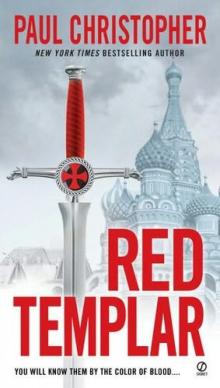 Red Templar
Red Templar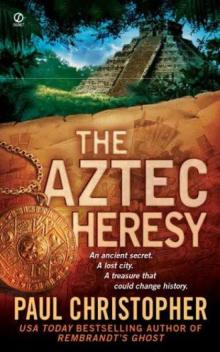 The Aztec Heresy
The Aztec Heresy The Templar Legion
The Templar Legion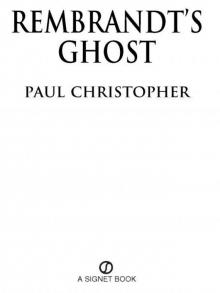 Rembrandt's Ghost
Rembrandt's Ghost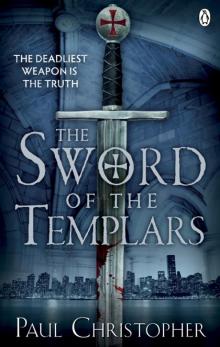 Sword of the Templars
Sword of the Templars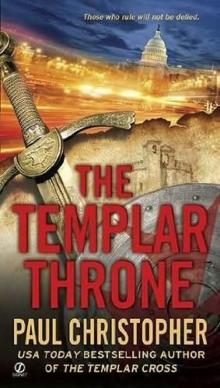 The Templar throne t-3
The Templar throne t-3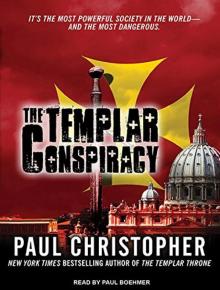 The Templar Conspiracy
The Templar Conspiracy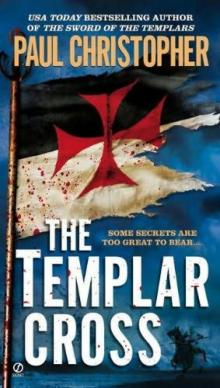 The Templar Cross t-2
The Templar Cross t-2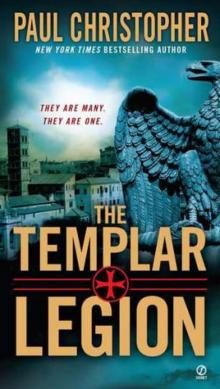 The Templar Legion t-5
The Templar Legion t-5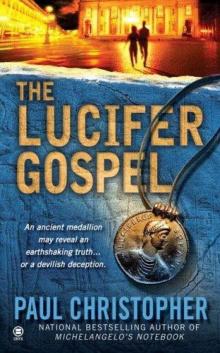 The Lucifer Gospel
The Lucifer Gospel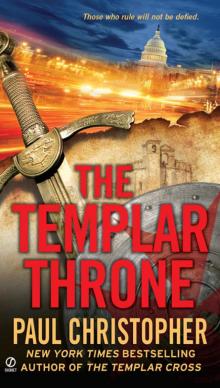 Templar Throne
Templar Throne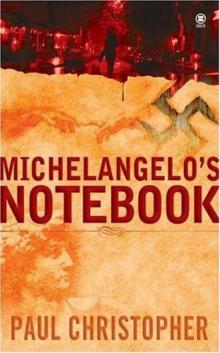 Michelangelo_s Notebook fr-1
Michelangelo_s Notebook fr-1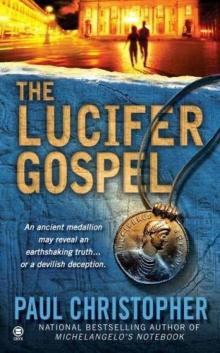 The Lucifer Gospel fr-2
The Lucifer Gospel fr-2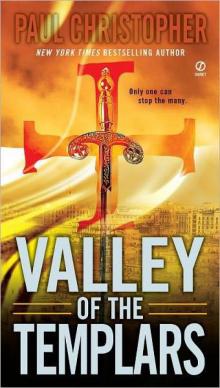 Valley of the Templars ts-7
Valley of the Templars ts-7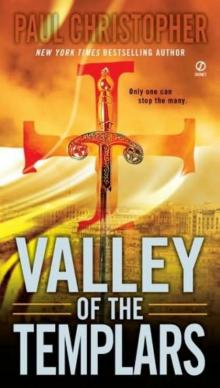 Valley of the Templars
Valley of the Templars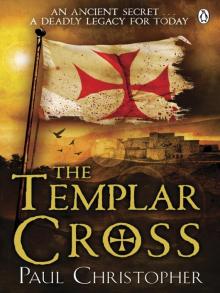 Templar Cross
Templar Cross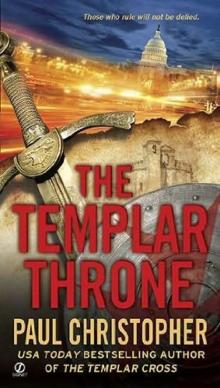 The Templar Throne
The Templar Throne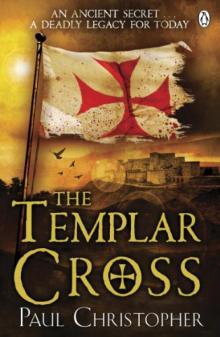 The Templar Cross
The Templar Cross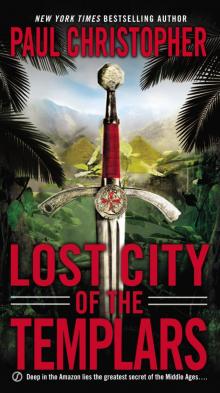 Lost City of the Templars
Lost City of the Templars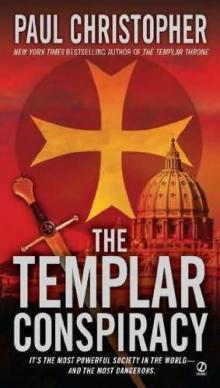 The Templar conspiracy t-4
The Templar conspiracy t-4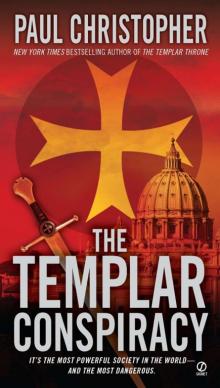 Templar Conspiracy
Templar Conspiracy